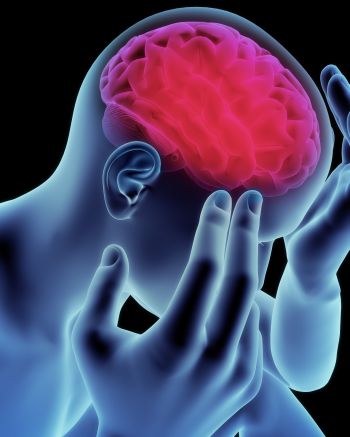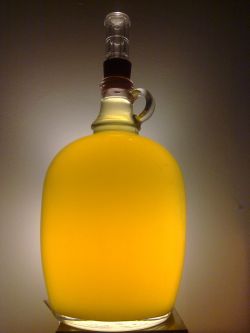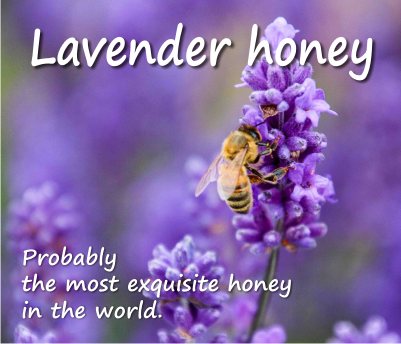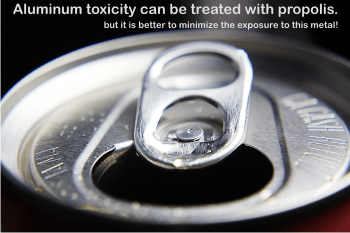Lots of people are searching for Alzheimer’s natural treatment and wonder about honey’s effect on it. Many alternative medicine practitioners say that honey helps in Alzheimer’s and Parkinson’s. As a healthy product with no side-effects, it’s very easy to recommend it. In fact, being so full of good nutrients it can only help, no matter the condition.
But there have been other serious approaches to this, in the hope of discovering what exactly helps, what are the best types of honey to help in these conditions, what are the perfect doses required to make a difference, and especially if it can really treat or only prevent.
By now, our science said that “No vitamin, dietary supplements or complementary treatment can prevent, reverse or cure symptoms of Alzheimer’s Disease.
Alternative treatments like: gingko biloba, folate, omega 3 fatty acid, vitamin B and vitamin E or C have yet to prove effective and safe, in large rigorous scientific studies.”
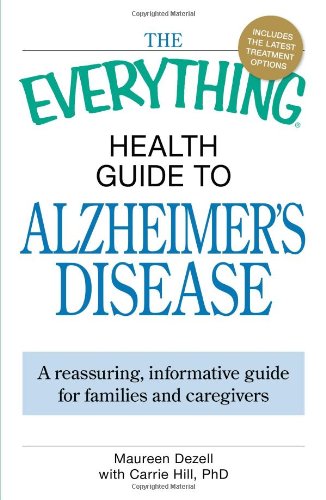
The best book I have found on this, by now, is “The Everything Health Guide to Alzheimer’s Disease: A Reassuring, Informative Guide for Families and Caregivers” by Maureen Dezell, Carrie Hill. Unfortunately the book is out-of-print, but you can still read some excerpts on Amazon, and Google Books, or find it on Alibris. It is not a scientific book, the language is very accessible, it describes in detail everything we need to know about caring and feeding an Alzheimer’s patient.
Unfortunately, what triggers the terrible diseases hasn’t yet been discovered. Stress occupies, as always, the first place. A stressful, tense, high-speed life is the the main cause of all diseases, no matter what nutritionists say.
But leaving these aside (stress and diet), scientists searched deeper in our body to discover what causes the diseases. And, again as always, they have come to different conclusions, none of them exactly solving the puzzle.
How serious is the situation?
Alzheimer’s Association said about the year 2013:
” – Alzheimer’s disease is the 6th leading cause of death in the United States.
– An estimated 5.2 million Americans of all ages have AD and that number is expected to increase by 40% to 7.1 million by 2025 and to 13.8 million by 2050.
– One in three seniors die with AD or another form of dementia.
– In 2013, the direct costs of caring for those with AD will total an estimated $203 billion.”(Alzheimer’s Association 2013 Alzheimer’s Disease Facts and Figures, www.alz.org)
Just like allopathic scientists, apitherapists research a lot, too. Here is what Stefan Bogdanov in his “Bee Product Science” says: antiacetylcholinesterase activity is thought to be linked with the prevention of neurodegenerative diseases such as Alzheimer. Several Brazilian honeys have significant antiacetylcholinesterase activity, which depend on the floral source.
The possible link between Alzheimer’s and Diabetes Type 2.
According to H Mahboobi, et al, “Humanin: A Possible Linkage between Alzheimer’s Disease and Type 2 Diabetes.” CNS Neurol Disord Drug Targets (2013) Dec 22, “Growing evidence also supports the link between diabetes and AD. This link supports the concept that AD is fundamentally a metabolic disease with molecular and biochemical features that correspond with diabetes mellitus and insulin resistance. The situation is complicated, however, by the fact that AD may arise in association with systemic insulin resistance diseases, including diabetes, obesity, and non-alcoholic fatty liver disease or as a separate disease.
The possible link between Alzheimer’s and sleep loss.
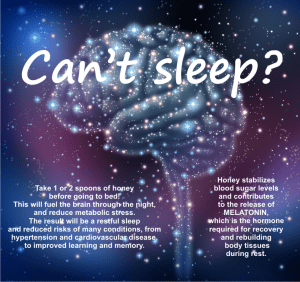 J Bloemer, et al, in “Impaired insulin signaling and mechanisms of memory loss.” Prog Mol Biol Transl Sci (2014) and 141AS Lim, et al, “Sleep Fragmentation and the Risk of Incident Alzheimer’s Disease and Cognitive Decline in Older Persons.” Sleep (2013), both said: Alzheimer’s disease is associated with interrupted sleep, poor quality sleep and sleep apnea.
J Bloemer, et al, in “Impaired insulin signaling and mechanisms of memory loss.” Prog Mol Biol Transl Sci (2014) and 141AS Lim, et al, “Sleep Fragmentation and the Risk of Incident Alzheimer’s Disease and Cognitive Decline in Older Persons.” Sleep (2013), both said: Alzheimer’s disease is associated with interrupted sleep, poor quality sleep and sleep apnea.
According to G Hurtado-Alvarado, et al, “ Sleep Loss As a Factor to Induce Cellular and Molecular Inflammatory Variations.” Clin Dev Immunol: “clinical and experimental studies in humans and animals have shown marked immune system impairments when sleep loss is experienced.” Fessenden concludes: “These connections would suggest that an improvement in sleep patterns in the elderly, might significantly lessen the manifestation and progression of all of the diseases related to the metabolic syndrome, including Alzeheimer’s.”
Chronic metabolic stress – the source of all evil!
According to Ron Fessenden in “The New Honey Revolution” there are 3 major factors responsible for these diseases: chronic brain starvation, chronic sleep loss and chronic metabolic stress. What are they?
![]() Chronic brain starvation = repeated brain starvation that occurs nightly when the liver glycogen reserve becomes depleted during sleep.
Chronic brain starvation = repeated brain starvation that occurs nightly when the liver glycogen reserve becomes depleted during sleep.
![]() Chronic sleep loss = a result of brain starvation that triggers the release of adrenalin and cortisol resulting in interrupted and short sleep.
Chronic sleep loss = a result of brain starvation that triggers the release of adrenalin and cortisol resulting in interrupted and short sleep.
![]() Chronic metabolic stress = a condition that happens when repeated and excessive adrenalin and cortisol release. It is a protective mechanism initiated by the brain to provide fuel for itself when liver glycogen reserves are depleted.
Chronic metabolic stress = a condition that happens when repeated and excessive adrenalin and cortisol release. It is a protective mechanism initiated by the brain to provide fuel for itself when liver glycogen reserves are depleted.
These three intertwine and manifest themselves in different ways in people, but they all share the same causal elements. Of course not all obese people have diabetes, just like we cannot say that skinny people cannot have diabetes. Starting from these three conditions some people develop osteoporosis, depressions, thyroid deficiencies or an early onset of Alzheimer’s disease or Parkinsonism. Or other forms of neuro-degenerative diseases. Some people get cancer or coronary artery disease. Many have hypertension or become handicapped from strokes. Others just sleep poorly every night. It all depends on each organism and of all the other systems involved.
But somehow, it seems that all happens because the leader of all our organs, the brain, is not happy. Because it’s hungry, and cannot function well.
Fessenden’s conclusion is that chronic metabolic stress is triggered by “chronic starvation of the brain”, which is caused by a low level of liver glycogen over night. Year after year, this starvation leads to a continuum metabolic stress. We first perceive it as poor sleep or bad quality sleep, or a hungry feeling and then it can degenerate to diabetes, obesity, neuro-degenerative diseases including Azeiheimer’s Disease, Parkinson’s and motor-neuron disease like Lou Gehrig’s disease.

 A dose of honey before bedtime, meaning 1 teaspoon to 2 tablespoons according to body weight, is what Ron Fessenden recommends. He supports his statement with the following explanations:
A dose of honey before bedtime, meaning 1 teaspoon to 2 tablespoons according to body weight, is what Ron Fessenden recommends. He supports his statement with the following explanations:
• Honey allows recovery physiology to occur without interruption during rest.
• Honey reduces the level of cortisol produced secondary to brain starvation.
• Cortisol negatively affects the hippocampus, the center for short-term memory and memory consolidation.
• Reducing or eliminating potential damage to the hippocampus from excessive cortisol levels would improve memory consolidation and retrieval.
• The fact that honey also stabilizes blood sugar and reduces the risk of insulin resistance and diabetes, which are known to be causative factors in Alzheimer’s, further suggests that honey might play a role in the reduction in the prevalence of this terrible disease.
More about this is One of the best foods that fuel your brain!
Further reading: Ron Fessenden: The New Honey Revolution.
Royal jelly can also help in Alzheimer’s disease.
“Royal jelly may be a promising agent for the activation of neural stem cells in a mature brain expected to differentiate into neurons or glial cells” – say scientists. And continue: ” Recent investigations clarified a relationship between the neurogenesis in the dentate gyrus of the hippocampus and the symptoms of depression, expecting efficient use of royal jelly to activate neurogenesis. Reduction of neuronal death and an increase of neurogenesis in Alzheimer’s disease and Parkinson’s diseases may be also supported by royal jelly, although a detailed animal experiment is necessary.” (FURUKAWA, S (2008) “Stimulatory Effects of Royal Jelly on the Generation of Neuronal and Glial Cells -Expectation of Protection Against Some Neurological Disorders.” Foods and Food Ingredients J.Jpn 213 (7)).
Bee Venom
Bee venom has already been shown to have beneficial properties against arthritis and different disease of the nervous system such as multiple sclerosis, Parkinson, Alzheimer and inflammations of the peripheral and central nervous system. There are published reports and studies supporting this, though there is need for more research. Bee venom is also used for the treatment of different heart conditions, due to its different effects on the central and peripheral nervous system.
Conclusion:
– A daily consumption of honey helps prevent all neurodegenerative diseases, like Alzheimer’s or Parkinson’s. A dose of honey taken right before bedtime feeds our brain with the necessary liver glycogen and keeps us safe from chronic brain starvation, chronic sleep loss and chronic metabolic stress, which could trigger a lot of diseases.
– There are types of honeys that have been studied more, like Several Brazilian honeys, which have an antiacetylcholinesterase activity, thought to be linked with the prevention of neurodegenerative diseases.
– Bee venom acupuncture is more effective in treating Alzheimer’s, Parkinson’s or ALS, but the subject needs more research and clinical trials. By now, the results are very promising.
Related articles:
• Bee venom for therapy: Alzheimer’s disease
• Bee venom for therapy: Multiple Sclerosis
• One of the best foods that fuel your brain!
• Sleep disorders cures
• Bee venom a possible natural treatment for Parkinson’s disease
References:
Ron Fessenden: The New Honey Revolution;
Stefan Bogdanov, Bee Product Science; Functional and Biological Properties of the Bee Products: a Review.
The Everything Health Guide to Alzheimer’s Disease, by Maureen Dezell, Carrie Hill
Pictures sources:
“Brain Headache” picture credit Digital Storm via Big Stock Photo;
“Thumbs Up!” picture credit Barabasa via Big Stock Photo;
“Brain Intelligence Discovery” picture credit digitalista via Big Stock Photo

